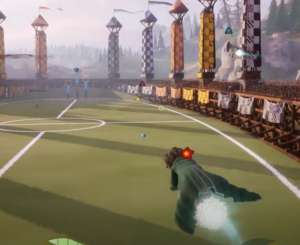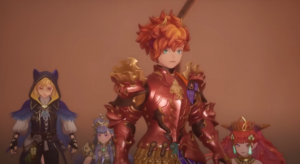
Metal Gear Solid V: The Phantom Pain – Celebrating Nine Years of Tactical Espionage Action
The End of an Era: Kojima’s Last Stand in the Metal Gear Series

Nine years ago, the gaming world witnessed the release of Metal Gear Solid V: The Phantom Pain, a title that marked the end of an era for the beloved Metal Gear series. Directed by the visionary Hideo Kojima, this game was not only the fifth main installment in the series but also Kojima’s final contribution before parting ways with Konami. The game’s release in 2015 was a significant moment in gaming history, and its impact is still felt today.
The Legacy of Metal Gear Solid V
Metal Gear Solid V: The Phantom Pain was more than just a game; it was a revolution in the tactical espionage action genre. Its open-world design, deep storytelling, and innovative gameplay mechanics set new standards for video games. The game’s ability to blend complex narrative with player-driven action has influenced countless titles since its release.
Open-World Exploration: The game introduced a vast, open-world environment where players could approach missions with unparalleled freedom.
Realistic AI: Enemies in The Phantom Pain adapted to the player’s tactics, creating a dynamic and challenging experience.
Immersive Storytelling: Kojima’s signature storytelling, filled with complex characters and thought-provoking themes, resonated with players worldwide.
Gameplay Innovations That Redefined the Genre
Metal Gear Solid V: The Phantom Pain brought several groundbreaking gameplay innovations that have since become staples in the gaming industry. These features not only enhanced the player experience but also pushed the boundaries of what was possible in video games.
Open-World Mechanics
The game’s expansive open-world environment allowed players to choose their own path and approach missions in a variety of ways. This freedom was a departure from the more linear designs of previous Metal Gear titles and offered players a sense of agency that was rare at the time.
Dynamic AI and Adaptive Enemies
One of the most lauded aspects of the game was its dynamic AI. Enemies adapted to the player’s strategies, forcing them to constantly evolve their tactics. This created a more immersive and challenging experience, as players could never rely on the same approach twice.
Deep Customization and Base Building
The Phantom Pain introduced a robust base-building mechanic, where players could manage and expand their own private army. This added a layer of strategy to the game, as players needed to balance resource management with mission objectives.
Kojima’s Final Vision: Thematic Depth and Complex Characters
Kojima is known for his ability to weave intricate narratives, and Metal Gear Solid V: The Phantom Pain was no exception. The game explored themes of revenge, loss, and the consequences of war, all while developing a cast of complex and memorable characters.
A Story of Revenge and Betrayal
At its core, The Phantom Pain is a story of revenge. The protagonist, Big Boss, is driven by a desire to avenge the destruction of his private military company. This quest for revenge leads him down a dark and twisted path, exploring the moral ambiguities of war and the impact it has on those who fight it.
Iconic Characters and Performances
The game featured some of the most iconic characters in the series, including Big Boss, Ocelot, and Quiet. The performances, particularly Kiefer Sutherland’s portrayal of Big Boss, brought these characters to life in a way that resonated with players.
The Impact of Metal Gear Solid V on the Gaming Industry
Metal Gear Solid V: The Phantom Pain has left an indelible mark on the gaming industry. Its influence can be seen in numerous games that have adopted its open-world design, adaptive AI, and narrative complexity. The game set a new standard for what action games could achieve, and its legacy continues to inspire developers.
Influence on Open-World Design
Many modern open-world games, such as The Legend of Zelda: Breath of the Wild and Red Dead Redemption 2, have drawn inspiration from The Phantom Pain’s design. The freedom to approach objectives in multiple ways has become a hallmark of the genre, thanks to Kojima’s innovation.
Legacy of Tactical Espionage
The tactical espionage genre has also evolved because of The Phantom Pain. Games like Hitman and Splinter Cell have incorporated elements of the game’s stealth mechanics and adaptive AI, further pushing the boundaries of player-driven action.
Looking Back: The Game’s Reception and Continued Relevance
Upon its release, Metal Gear Solid V: The Phantom Pain received critical acclaim for its gameplay, narrative, and innovation. It won numerous Game of the Year awards and remains a favorite among fans of the series.
Critical Acclaim
The game was praised for its groundbreaking gameplay and deep narrative. Critics lauded Kojima’s ability to create a complex and engaging world that offered players a unique experience. The game’s open-world design and adaptive AI were particularly highlighted as revolutionary features.
Fan Reception and Enduring Popularity
Even nine years after its release, The Phantom Pain continues to have a dedicated fanbase. The game’s depth and replayability have kept players engaged, and its influence on the industry is still felt today.
The Future of the Metal Gear Series
With Kojima’s departure from Konami, the future of the Metal Gear series remains uncertain. However, the legacy of Metal Gear Solid V: The Phantom Pain will continue to shape the direction of the franchise and the gaming industry as a whole.
Speculations and Hopes for the Next Installment
Fans of the series are eagerly awaiting news of a new Metal Gear game. While there are no official announcements, the impact of The Phantom Pain ensures that any future installment will have big shoes to fill.
Kojima’s Influence Beyond Metal Gear
Since leaving Konami, Hideo Kojima has continued to innovate in the gaming industry. His work on Death Stranding has shown that his creativity and vision remain as strong as ever, and his influence on the Metal Gear series will be felt for years to come.




